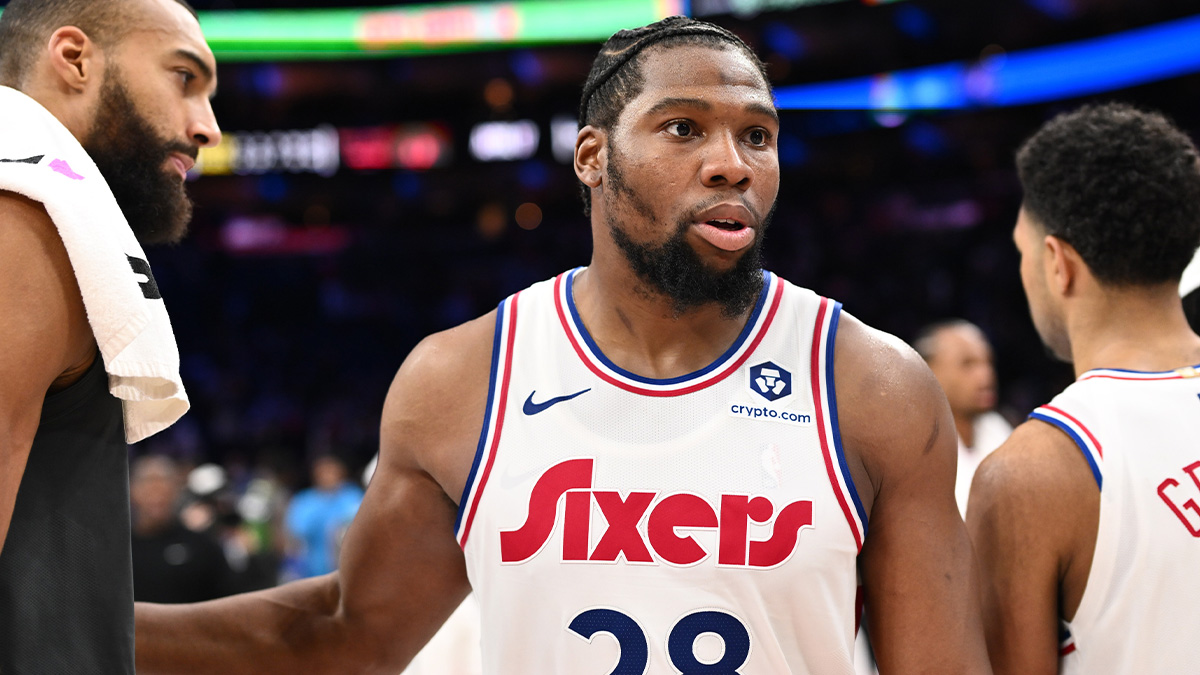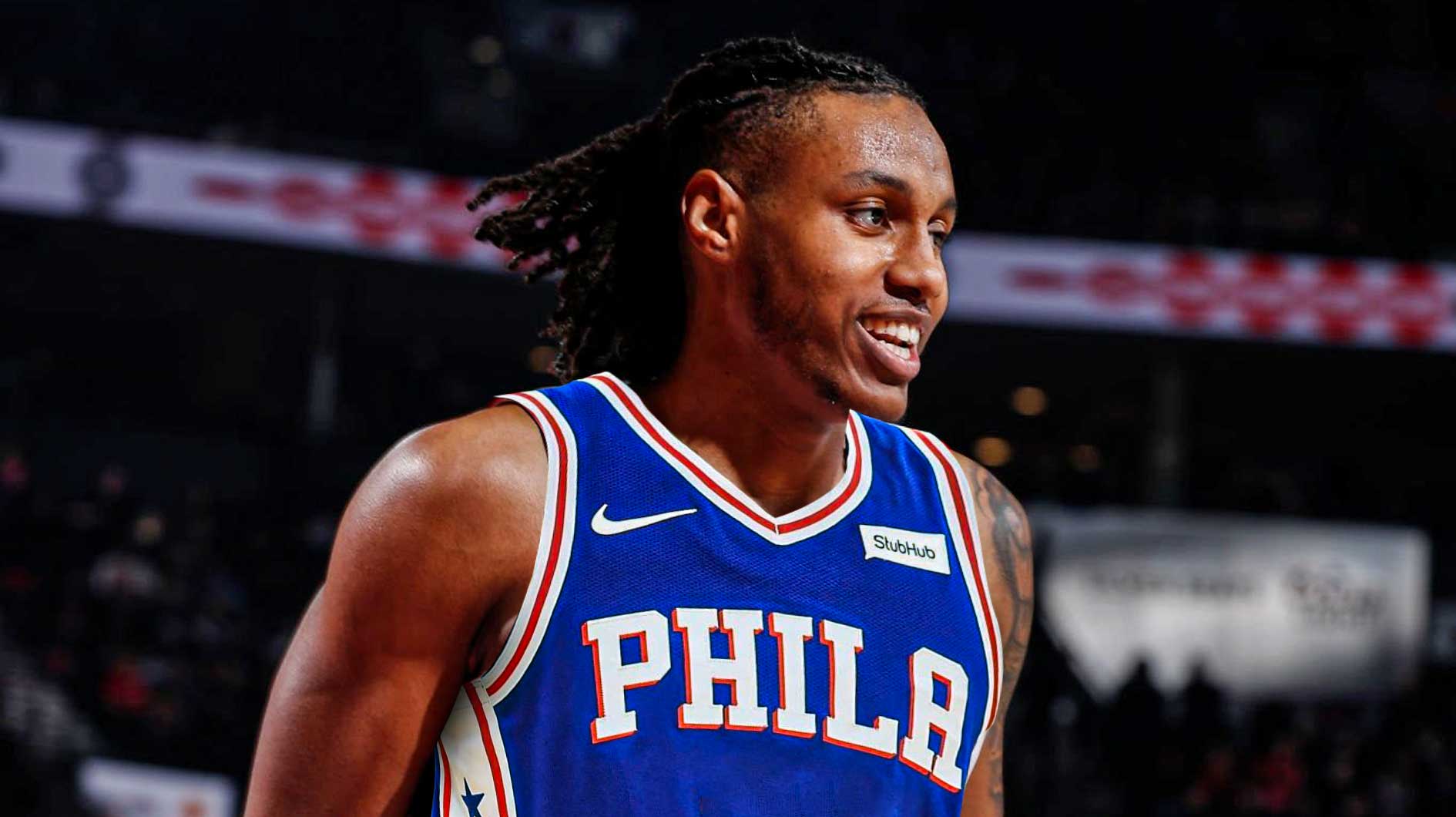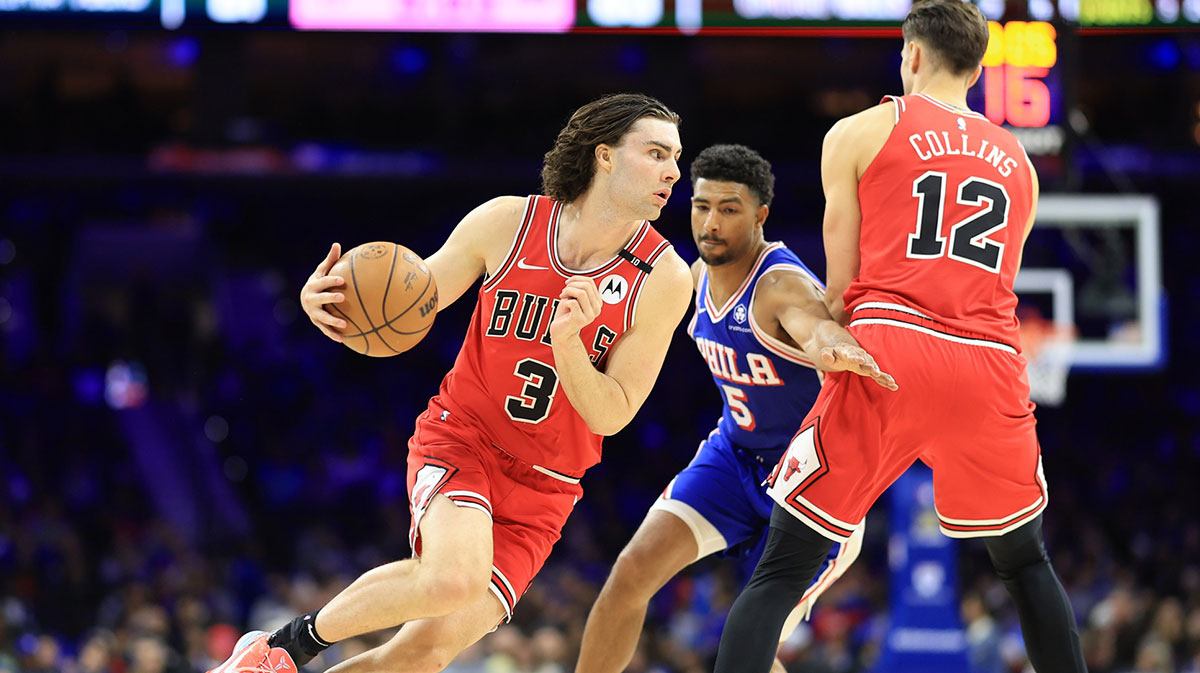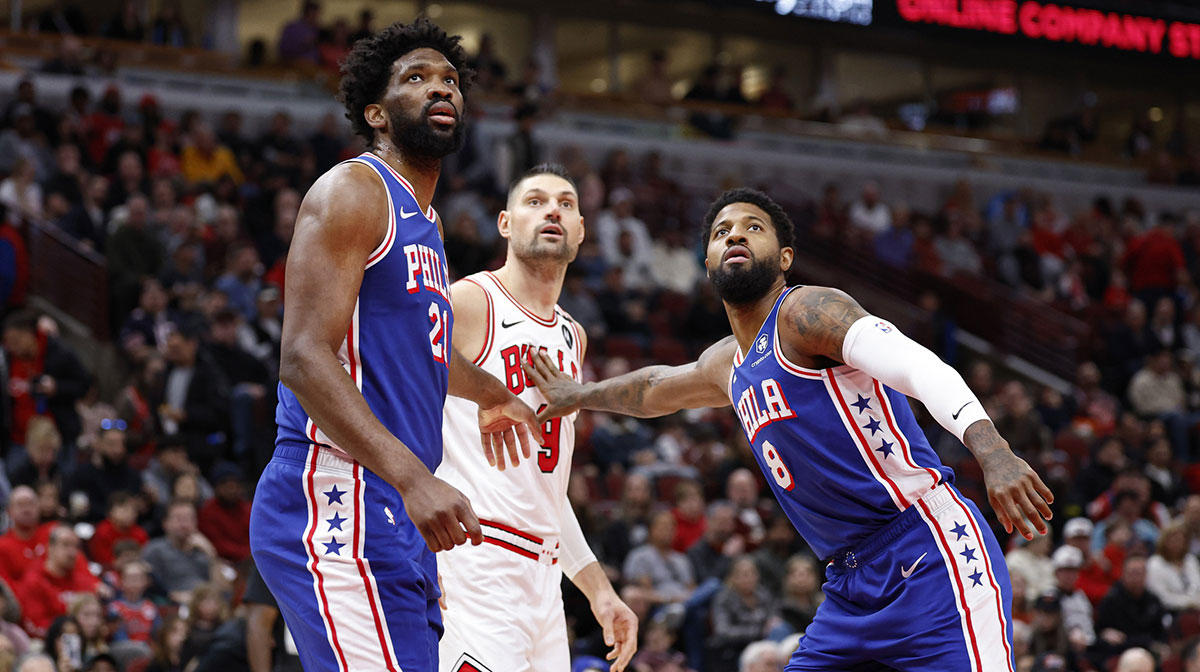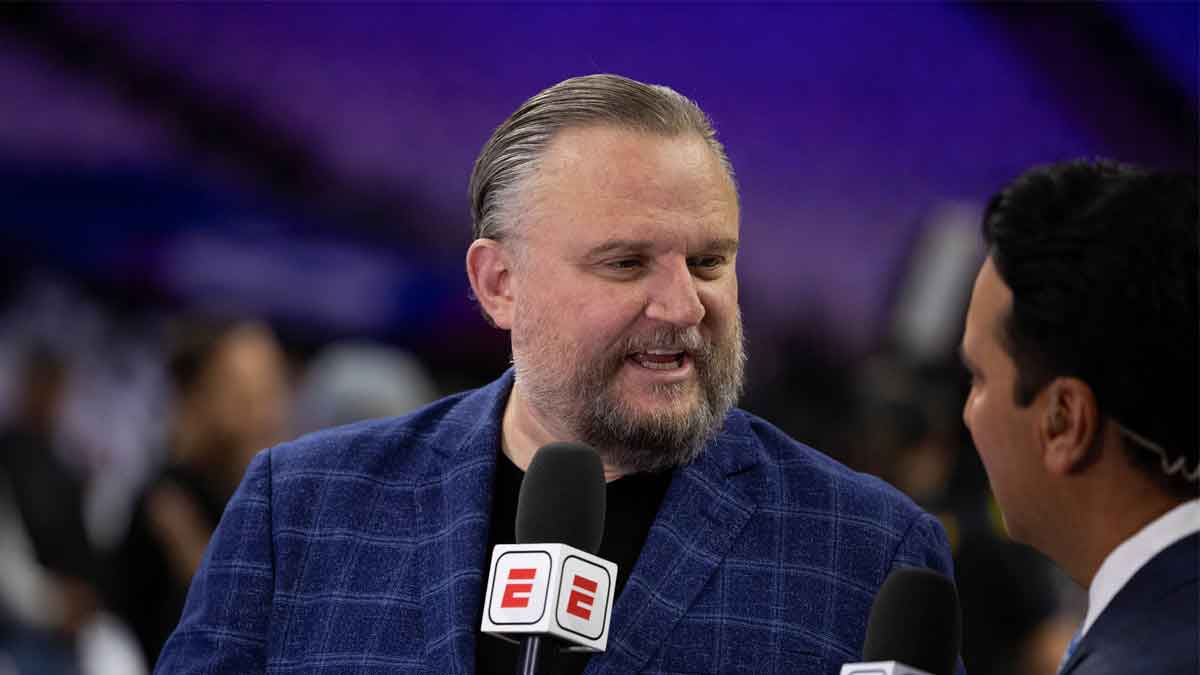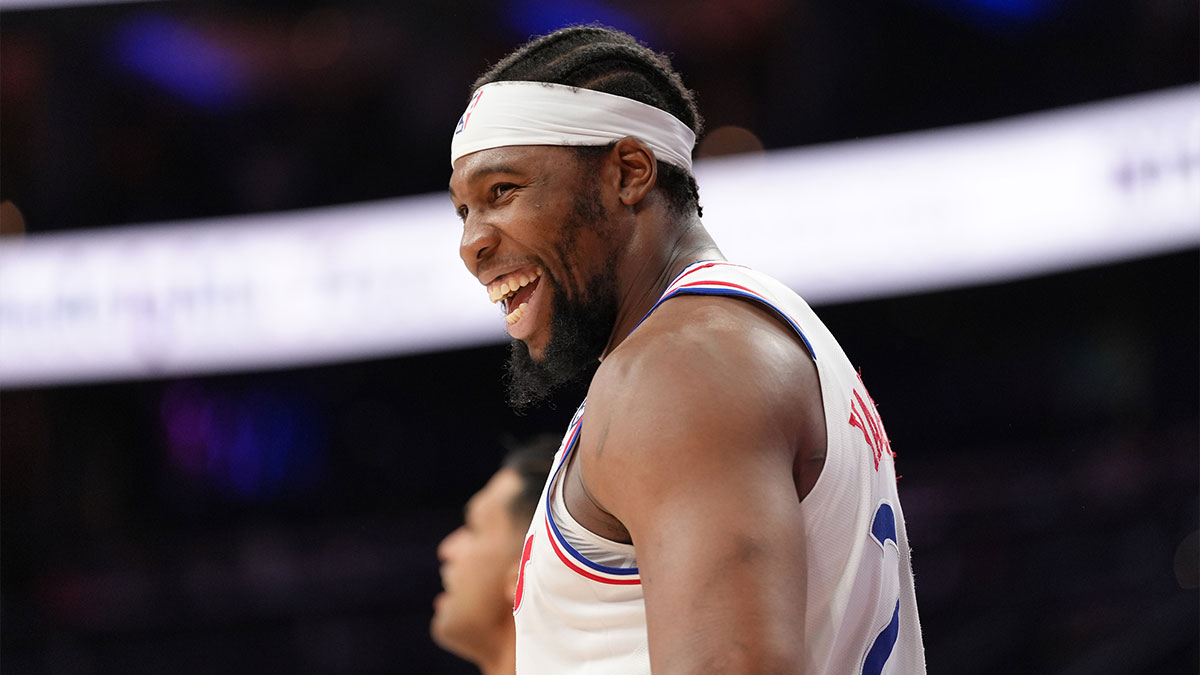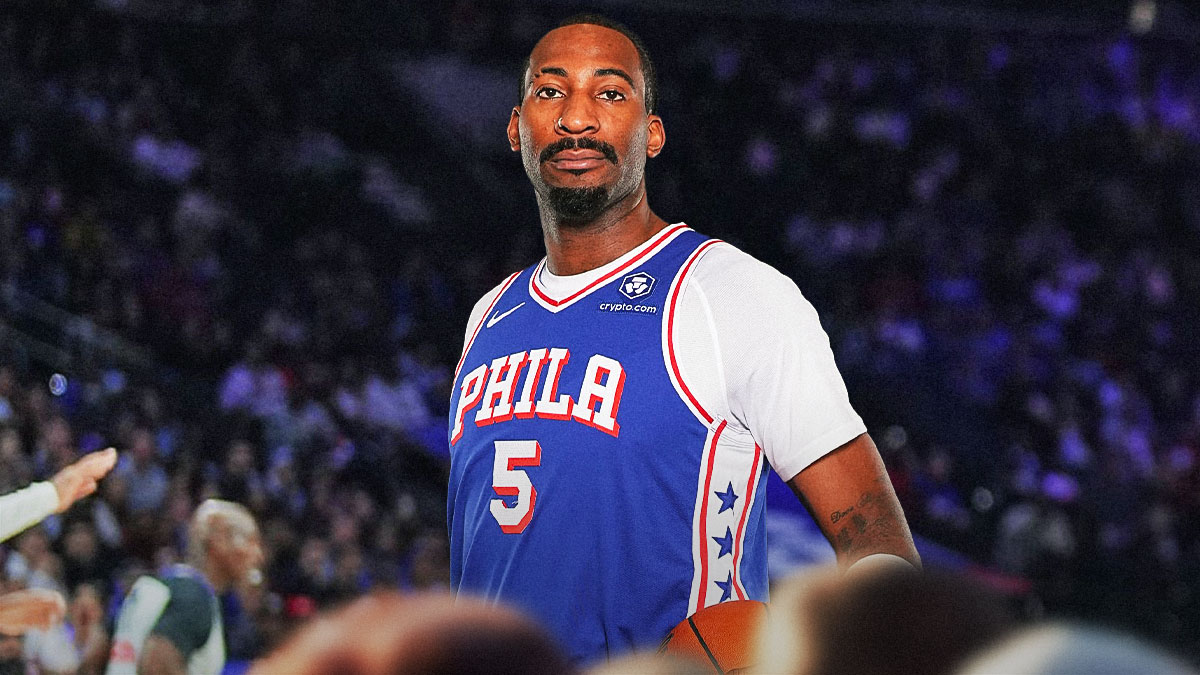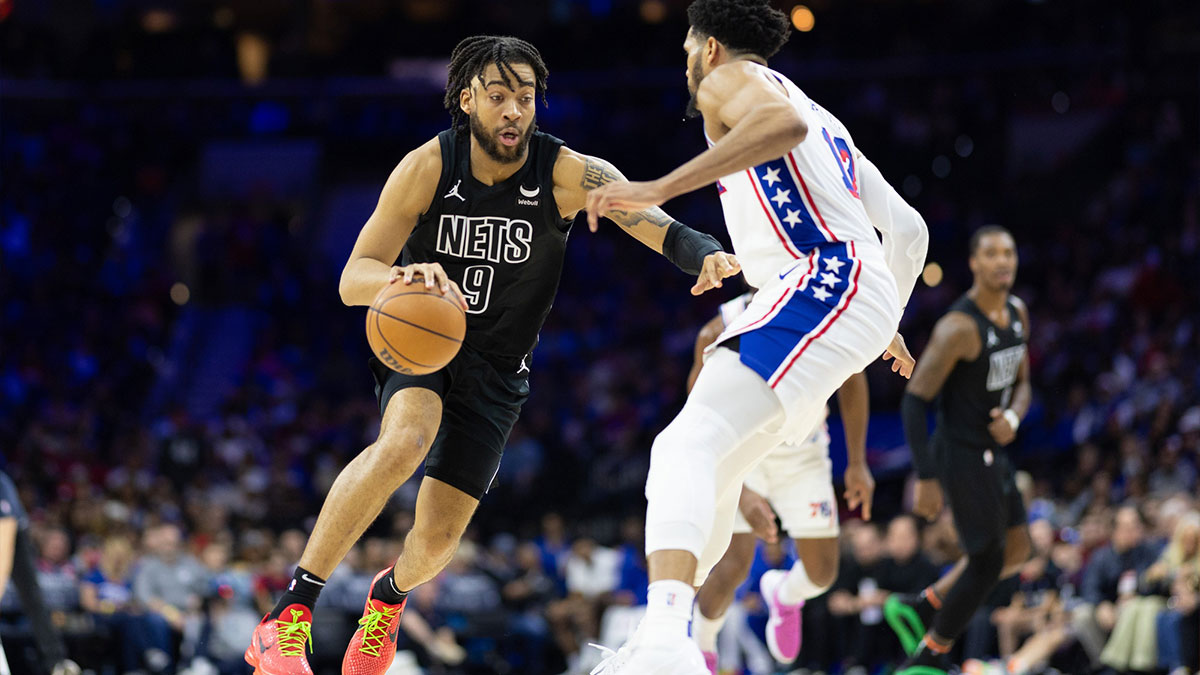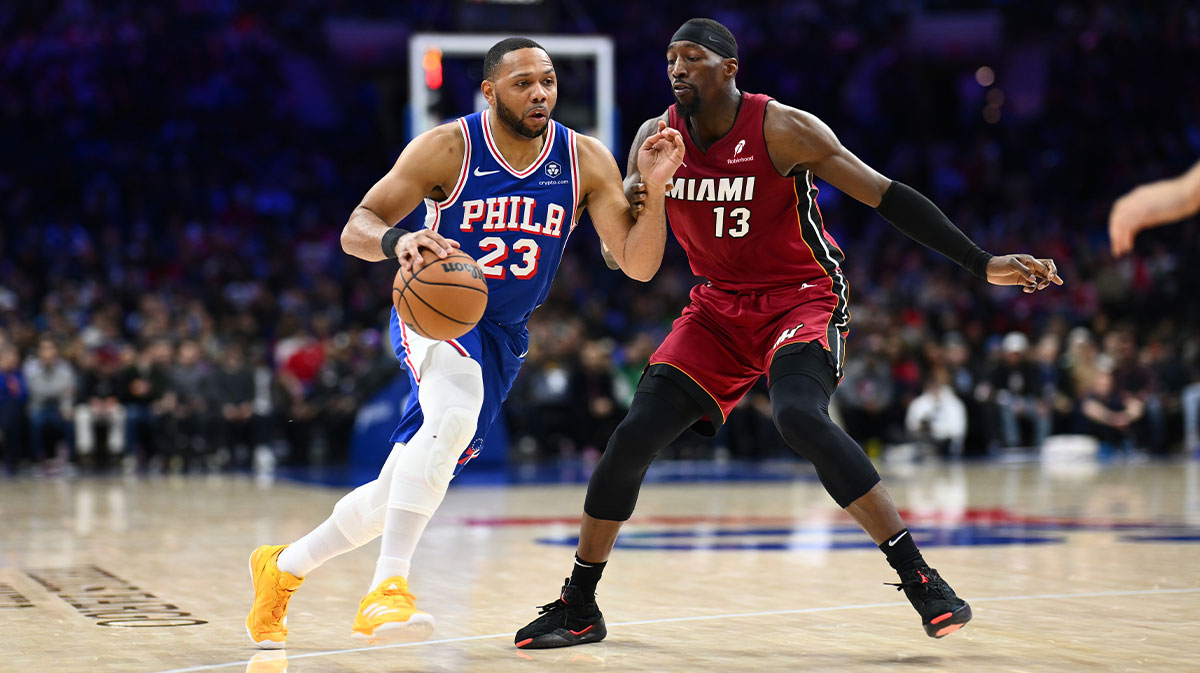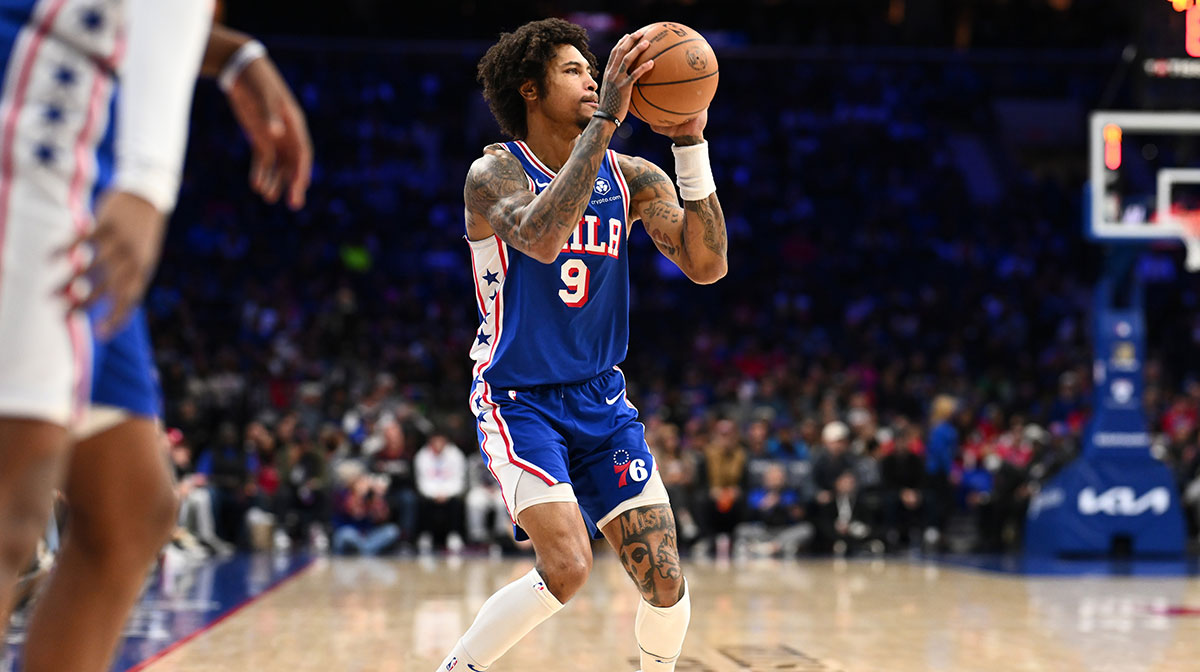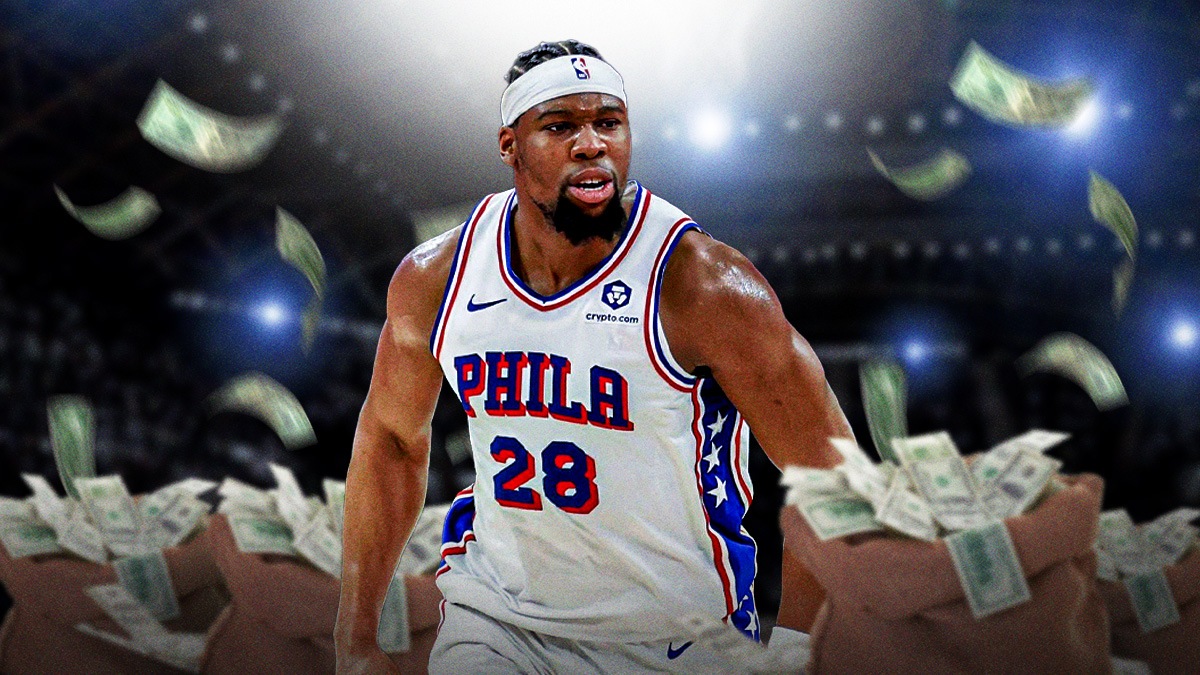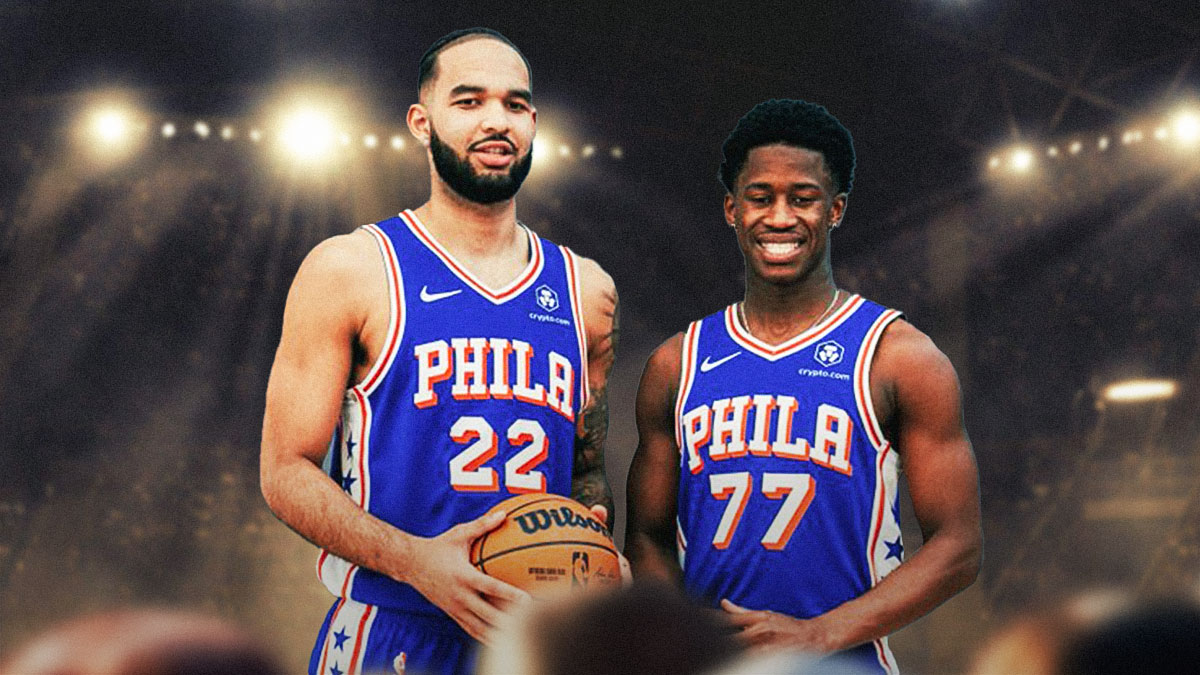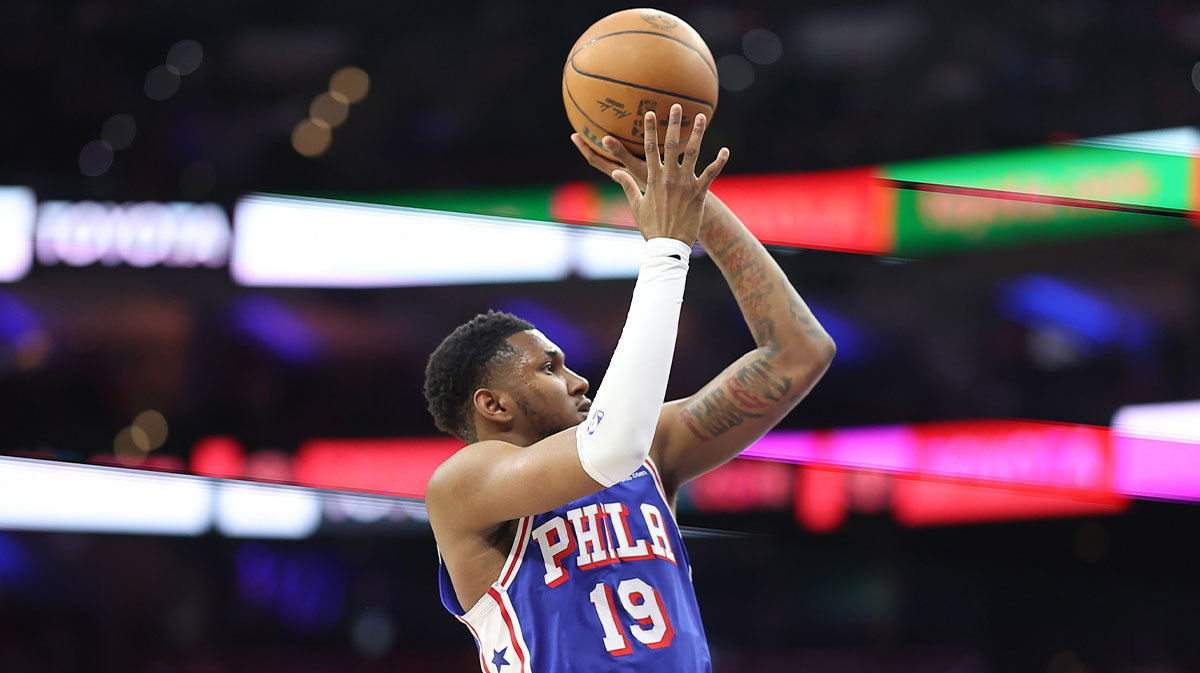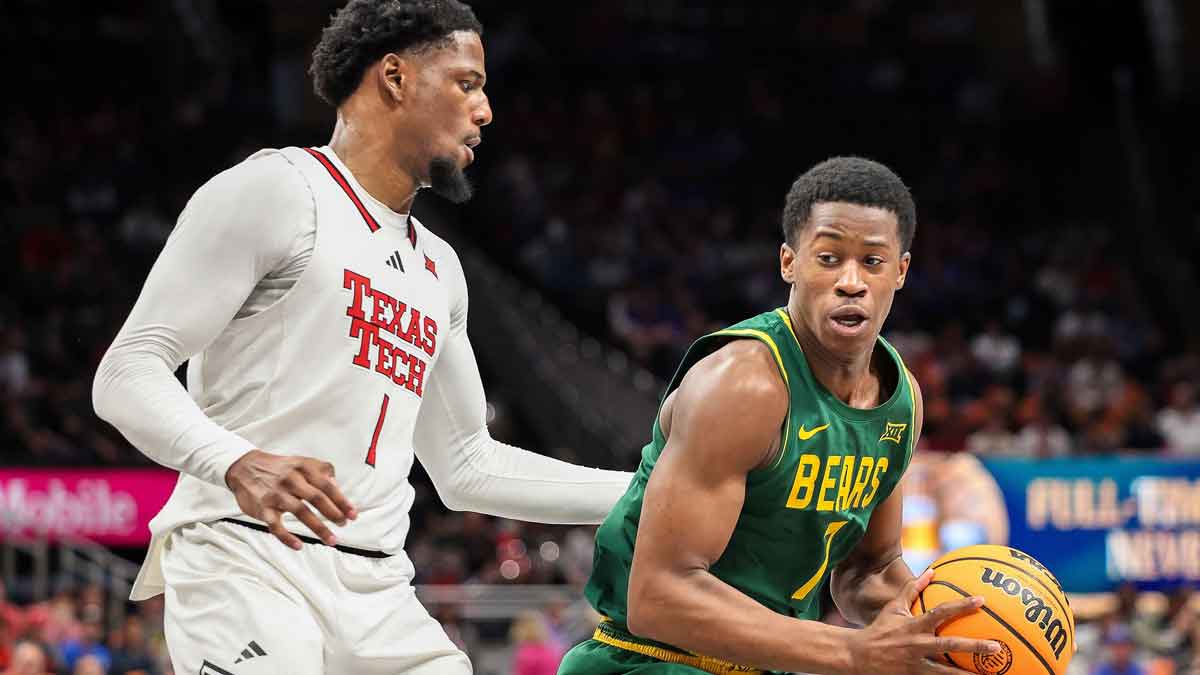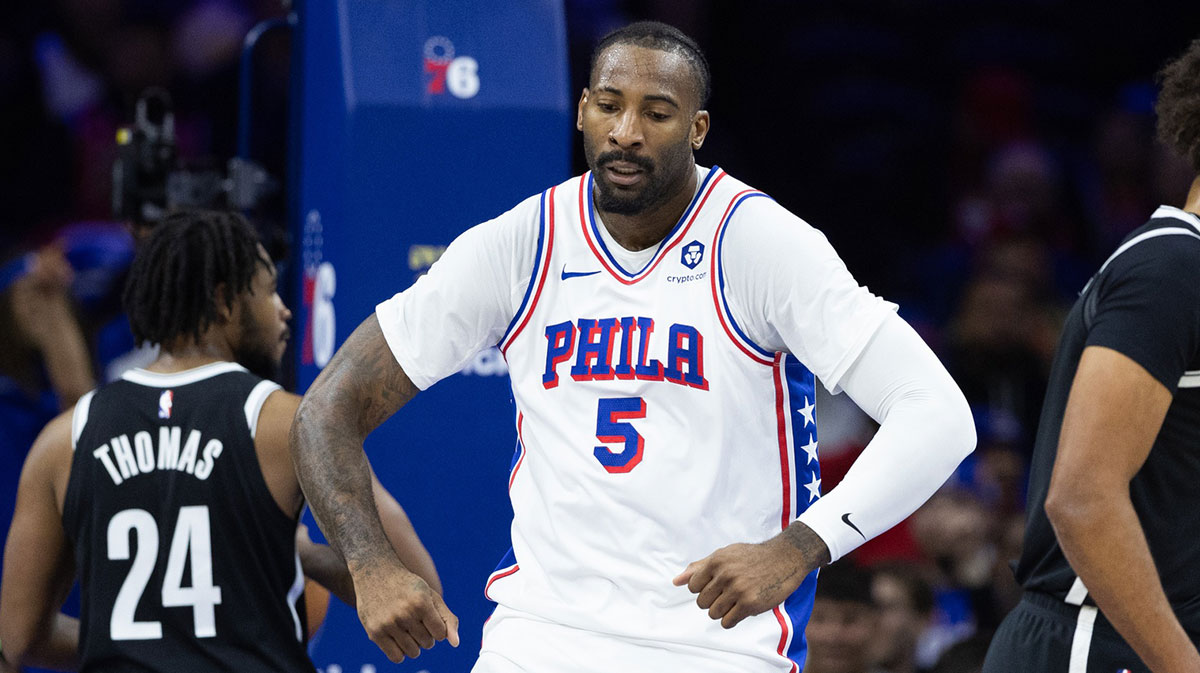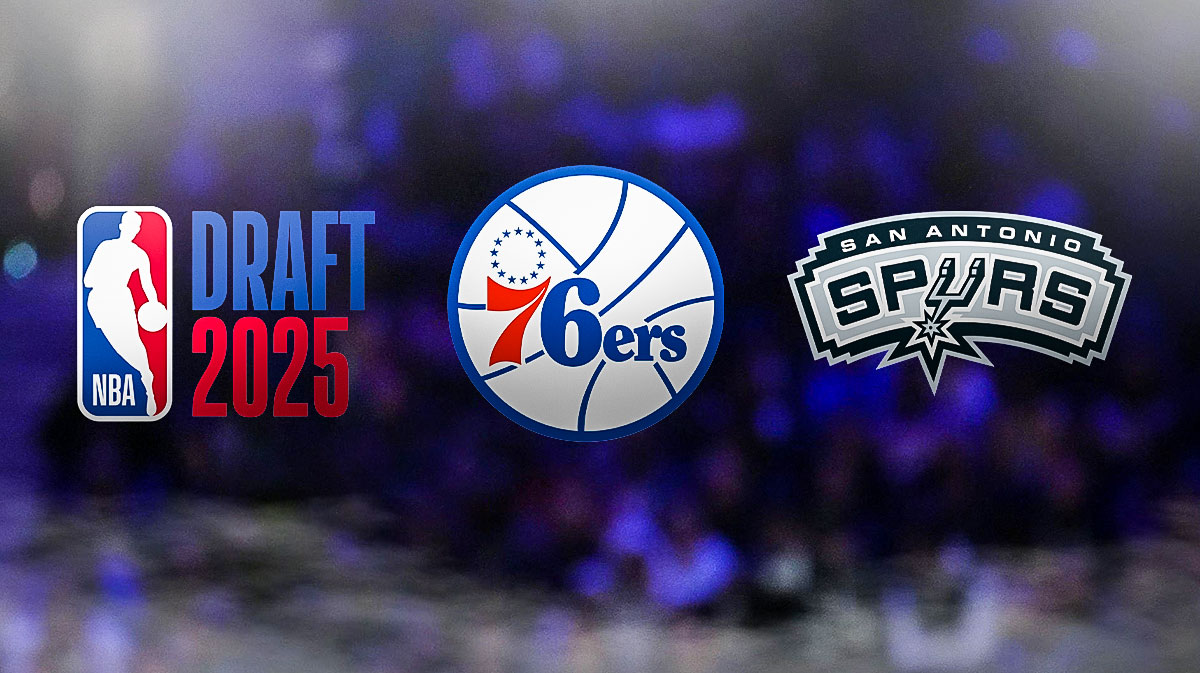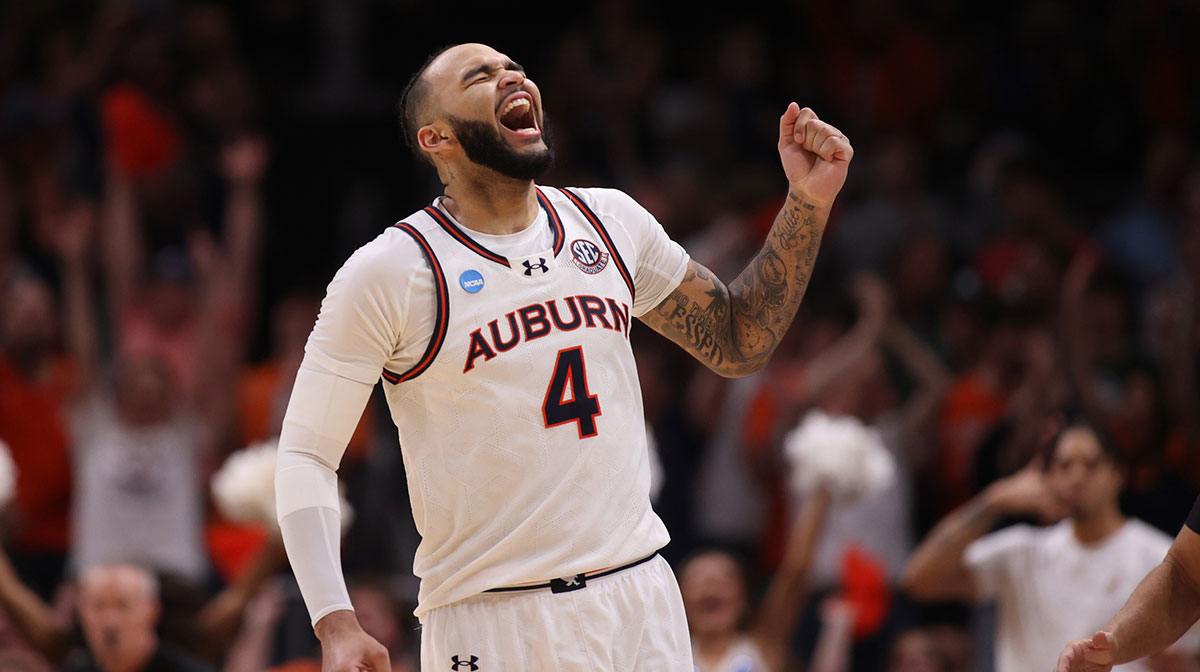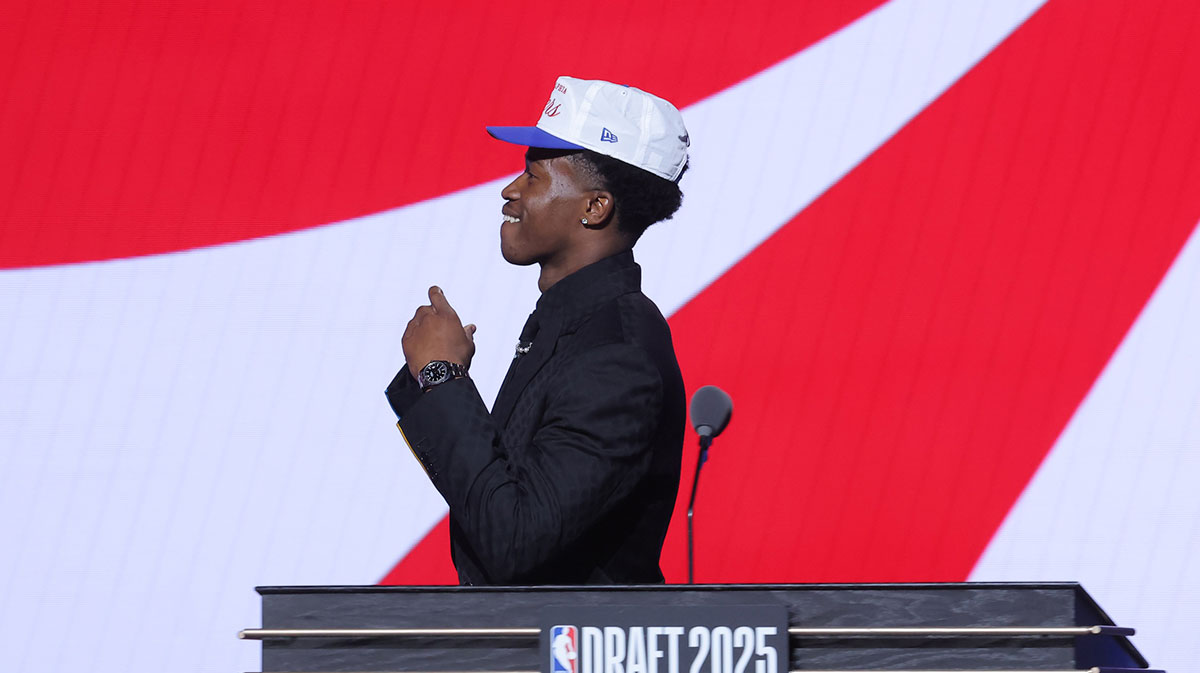On May 15, 2001, Philadelphia 76ers superstar Allen Iverson won the NBA's Most Valuable Player award, making him the smallest player to ever take home the honor.
Some say that Los Angeles Lakers legend Shaquille O'Neal actually deserved the award that year, but you really couldn't go wrong with either Iverson or O'Neal.
Iverson proceeded to lead the Sixers to the NBA Finals that season, ultimately falling to Shaq's Lakers in five games after Iverson led Philadelphia to a thrilling overtime victory in Game 1. Who could forget Iverson's 48-point performance that was highlighted by the iconic image of him stepping over a fallen Tyronn Lue after draining a jumper from the corner?
But that was the only time Iverson ever made the Finals. As a matter of fact, Iverson would never even make another conference finals appearance after 2001.
So, why was Iverson unable to win a championship?
The answer (pun fully intended) is simple: he never had the supporting cast.
Even in 2001, when the six-foot, 165-pound Iverson propelled the Sixers all the way to the finals, his teammates were rather lackluster. An aging Dikembe Mutombo. Eric Snow. Aaron McKie. George Lynch. Tyrone Hill. Theo Ratliff.
To be fair, all of those guys could all play some defense, but offensively, Iverson was pretty much on his own.
That trend continued for Iverson throughout his entire 10-and-a-half year tenure (not counting his 25-game stint with the Sixers during his final season in 2009-10) in Philly. The front office was unable to supply him with the appropriate talent. Philadelphia tried adding Chris Webber midway through the 2004-05 campaign, but by that point, Webber was already on the decline. Otherwise, Iverson was left to himself.
The Sixers traded Iverson to the Denver Nuggets during the 2006-07 season, resulting in a star pairing of Iverson and Carmelo Anthony.
Yes, they could both fill it up, but the Iverson-Anthony fit was always an awkward one due to their conflicting play styles. Both guys were ball-dominant perimeter players and it just didn't work.
Iverson lasted three seasons in Denver. He played well individually, but the Nuggets as a team were unable to accomplish anything in the playoffs.
Iverson then bounced around between the Detroit Pistons and Memphis Grizzlies before re-routing back to Philadelphia in 2009, but by that point, his best days were long behind him.
So ended an iconic NBA career, one that will forever be remembered but was never validated with a ring. Not that Iverson needs any validation to those who watched him regularly, but you know how it works: if you leave the game without a title, you are automatically disqualified among the ranks of the all-time greats in the eyes of most.
Funny enough, Iverson's best chance at a ring came just before the Sixers decided to trade him to the Nuggets in December 2006. The Minnesota Timberwolves, who housed a prime Kevin Garnett at the time, aggressively pursued Iverson prior to the Denver deal. Imagine a Garnett-Iverson pairing? Now that would have been something.
But the Timberwolves were unable to provide the Sixers with an offer that was enticing enough.
Minnesota's inability to strike a deal for Iverson not only represented the death blow for Garnett's career in the Twin Cities (he was traded to the Boston Celtics that ensuing summer), but it also marked the final nail in the coffin for Iverson in his quest for an elusive ring.
As exciting as the AI-Melo tandem sounds, everyone knew at the time that it simply was not going to be enough, which had been the theme for Iverson throughout his professional career.
Criticize his playstyle all you want. Call him a ballhog. Knock his penchant for gambling on the defensive end. But there is no denying what a monster Iverson was at his peak, and with the right pieces around him, there's no doubt that he could have won a championship.
Think about it: during that 2001 postseason, Iverson essentially single-handedly led his Sixers to an Eastern Conference Finals win over a Milwaukee Bucks team that consisted of Ray Allen, Sam Cassell and Glenn Robinson. Imagine if Iverson had two of those guys on his team? Philadelphia would have put up much more of a fight against Los Angeles; that's for sure.
That's how good Iverson was. Even at his diminutive size, he could still take over a game and dominate a series. He just never had enough help.
Iverson will forever be an icon. He is a Hall-of-Famer, after all. But thanks to some poor decisions from the Sixers' executives, he was never able to cement his legacy with a title. And that will always be a shame.

